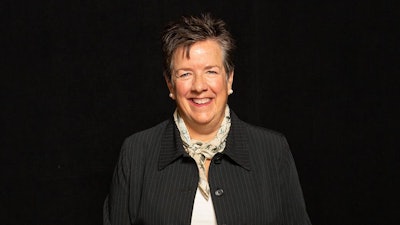We live in a world increasingly reliant upon data. Almost every action we take generates data, and corporations, governments and organizations are collecting and analyzing that data to better understand our behaviors.
Society needs professionals trained to understand this modern landscape and how it impacts their lives and careers. Many, if not most, of our students will be working in a field impacted by data and its quantitative, computational analysis. The Bureau of Labor Statistics predicts employment in data-related fields will grow by 30% in the next 10 years. Future data-related jobs will lie at the intersection of data-rich domains, including economics, science, geography and psychology, working in concert with statistics, computation and business. The demand for data managers and analysts with quantitative skills who can understand and make data-driven decisions will continue to increase.
Students pursuing careers in all sectors will benefit from data skills. Physicians will be using biosensors to monitor patient health; environmental engineers will be using data to design improved processes and materials; public health officials will be monitoring wastewater for disease; attorneys and law enforcement officials will be scouring databases to track individual locations; and business owners will be growing their businesses by better managing sales. We are training our students for future careers – many of which have not yet been invented – but we do know that data and the analysis of that data will be critically important. Dr. Carol Parish
Dr. Carol Parish
Increasing and diversifying a workforce skilled to fill these data-driven jobs can be achieved through highly mentored, intentional involvement in innovative, publishable research projects.
Topics in chemistry and physics are particularly abstract, quantitative and laden with unfamiliar jargon. Studying science is challenging not only because of these aspects but because pursuing a scientific career involves working at the edge of both what is known, and unknown. It is not for the faint of heart, and trainees need coaching, guidance and support. But the benefits are great – not only are scientific and computational careers among some of the most rewarding and highest paying jobs – mastering scientific and quantitative topics enables an individual to gain confidence and critical thinking skills, regardless of their eventual career trajectory.
Today’s students are interested in more instruction, experiential learning, credentialing, and career prospects in quantitative and computational fields. At the University of Richmond, we have responded to these demands by developing programming in data analytics, data science and computational research. We have also developed programs to recruit and retain students interested in science. UR is a research-intensive, predominately undergraduate, predominately white institution. My computational chemistry laboratory has benefitted from our twinned focus on data and inclusion and serves as a case study for how access to meaningful research opportunities encourages people from all backgrounds to pursue data-related careers. Since 1998, 113 undergraduate students have received research training in my laboratory. Of these, 72 women (64%) and 45 African American, Hispanic American, Pacific Islander and/or Native American students (40%) were trained in data-related, computational methods. In addition to these undergraduate students, nine post-doctoral and seven post-baccalaureate fellows participated on the projects, five of whom are from African American or Hispanic American backgrounds. My laboratory has also hosted six external visitors and 14 high school students who are underrepresented minorities. Data and computational science continue to be traditionally male-oriented fields, which further amplifies the importance of encouraging the participation of women and people of color. Highly mentored, intentional research training supports the development of a diverse, globally competitive STEM workforce, and the research benefits from the engagement of those with varied backgrounds and perspectives.
In my laboratory, the research projects are diverse by design. We focus on understanding the molecular behavior of model compounds related to energy and human health. We use a variety of computational tools such as quantum mechanics, machine learning and molecular dynamics to generate and analyze large datasets. The results of our research advances understanding of COVID-19 and cancer, as well as the design of functional materials used in molecular magnets, solar cells, photovoltaics, sensors and alternative energy sources. Our projects enable meaningful student engagement in publishable work as early as their first year of college. The unifying theme in all of our work is the methodological, molecular-based approach we employ. The Parish lab is interdisciplinary – all projects employ the tools of mathematics and computer science to solve important problems in biology, chemistry and physics.
Students gain hands-on experience in every stage of these data-related computational projects. Student credentialing comes in the form of co-authorship on peer-reviewed publications. In the last 21 years, we have published 60 papers in high quality, peer-reviewed journals, summarizing the research of 147 undergraduate student coauthors. These students have been responsible for 323 presentations at regional, national and international chemistry meetings. More than 100 research students have graduated and 46 went on to pursue a Ph.D. at highly competitive graduate training programs at Berkeley, MIT, Chicago, Oxford, Cambridge, Princeton, Penn, Cornell, Columbia, etc. Twenty-four students have gone on to professional schools (M.D., J.D.) and 31 of my research alums directly entered the chemical or pharmaceutical workforce.
Research is an effective on-ramp to data-driven careers, especially when research mentors make an intentional effort to foster supportive and inclusive environments in their labs and research groups. These efforts can begin as early as the first year of a student’s undergraduate career, and sustained, outcome-oriented involvement leads to significant skill development, enhanced levels of student confidence and a more diversified workforce.
Dr. Carol Parish is the Floyd D. and Elisabeth S. Gottwald Professor of Chemistry and Associate Provost for Academic Integration at the University of Richmond.
















